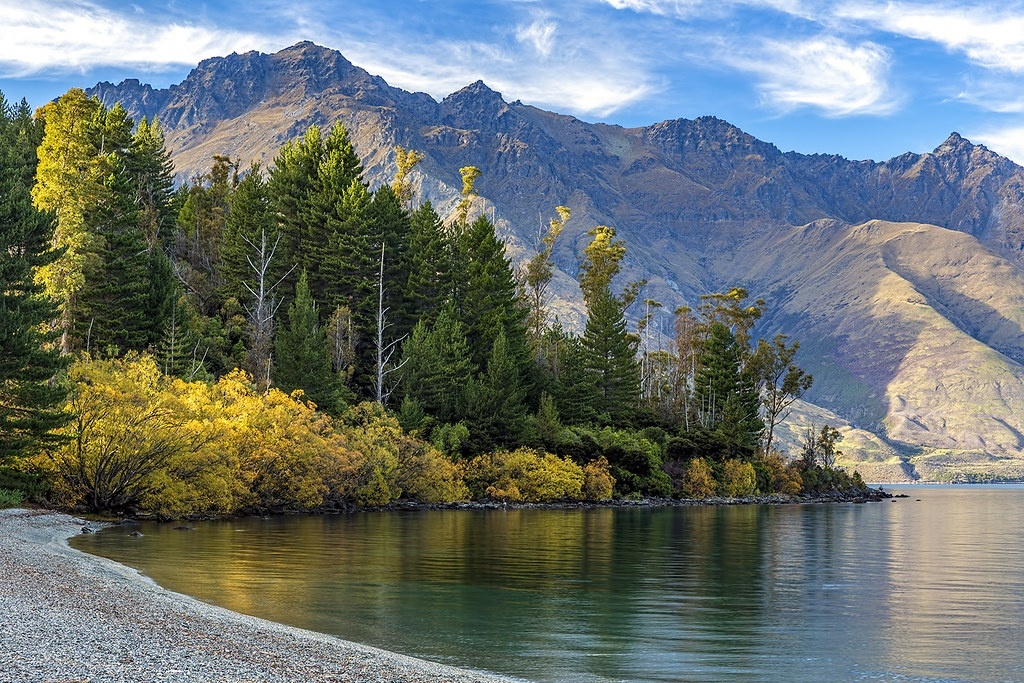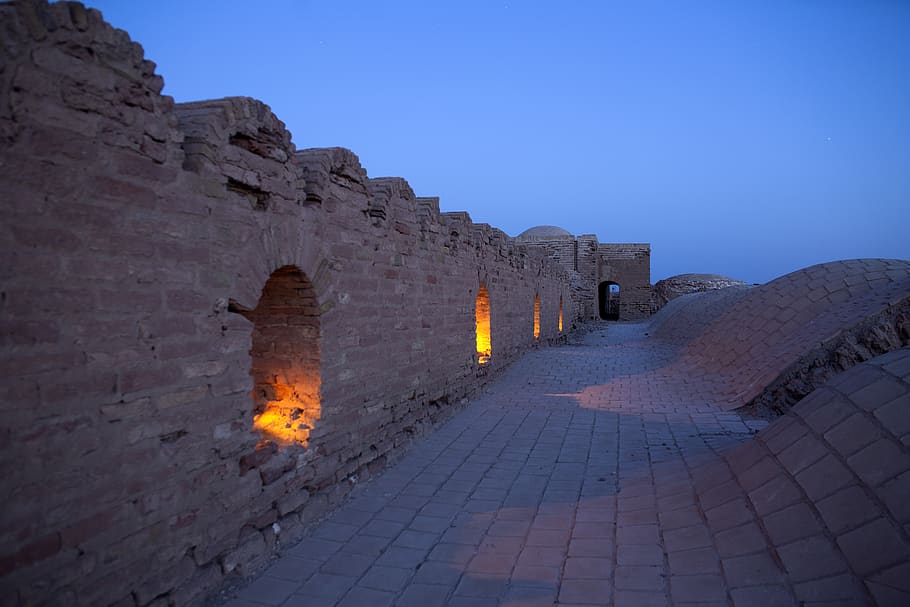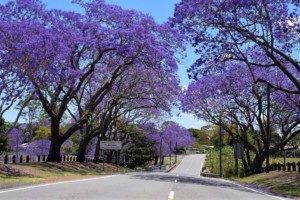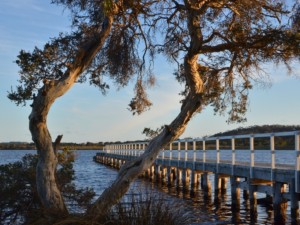Good news in tourism April 5 – 11, 2020

Published Sunday to be ready Monday, “Good news in tourism” is the perfect pick-me-up for the start of a new week in travel & tourism. And go!
Seriously. Are host communities the vaccine against overtourism?
If they are indeed taken seriously by policymakers then host communities must surely offer protection against overtourism and its associated ills. (Callback: See this March 21 “GT” Insight.) In the news this week is even more anecdotal evidence for your correspondent’s assertion:
India’s sustainable tourism businesses are showing “why community-first practices must be the future of all tourism”. The article includes mention of “GT” Friend Neha Arora of accessible travel outfit Planet Abled who has reportedly reached out to her network of differently-abled people to offer support during coronavirus lockdown: “If anyone needs a caregiver to visit them daily or needs essentials delivered, this counts as an essential service and we can help get a pass issued.” (Callback: Read Ms Arora’s “GT” Insight from June 2019.)
A former local councillor for tourism-reliant Queenstown, New Zealand is urging the town to use the coronavirus moment to re-imagine a future in which tourism was not the focus. Kirsty Sharpe said: “We have been overly reliant on tourism […] I think the community should be involved in how tourism looks here in the future”. She reckons the community has been talking about this since before the pandemic.
Tourism chiefs all along Aotearoa are seemingly of the same mind as Ms Sharpe, indicating their intent (undertaking? / promise?) to consult with communities first as they prepare to “reboot” after COVID-19:
Tourism Minister Kelvin Davis, who expects a report from Tourism New Zealand in the coming weeks, said: “This is an opportunity to rethink the entire way we approach tourism to make sure we make New Zealand more sustainable, that we enrich the lives of New Zealanders”.
Tourism New Zealand boss Stephen England-Hall reportedly said that the shutdown was “a rare opportunity to design the future of tourism with feedback from communities”.
Tourism Industry Aotearoa boss Chris Roberts said tourism in New Zealand “can be the world’s most sustainable tourism industry, the most environmentally-protective [and] the one that listens to its communities better than any other”.
In the country’s largest city, Steve Armitage of Auckland Tourism, Events & Economic Development said that “local input would be vital for any future planning”.
Regional Tourism Organisations New Zealand boss Charlie Ives pointed out that local governments should have a big say on the recovery plan given that they are the “largest investors in tourism at a local level” in terms of the required infrastructure.

Meanwhile, in the Netherlands’ capital, David Veldhoen said he was delighted when his city removed the iconic “I Amsterdam” from the Museumplein in December 2018. “The letters were for me a symbol of tourism,” he said.
Many of the 850,000+ residents of Amsterdam feel overwhelmed by the millions of annual visitors; 17 million last year. But zero is worse. Locals hope Amsterdam finds a “kinder, gentler” tourism industry as travel picks up after the COVID-19 crisis.
In neighbouring Belgium, the writers of the Shitty Guide Antwerp reckon overtourism is ruining Europe. With the closure of some of the featured places in their guide, there’s “a sad, hilarious irony” that isn’t lost on them. “Sarcastically, they say they’ve become a victim of their own success.”
Haven’t we heard speakers at travel & tourism conferences say those words about destinations before? Over and over again? For decades? Yet the victims of tourism’s success continue to pile up.
Be like medical professionals. Be brave and do your jobs.
“GT” rant alert. To skip, scroll down to the next subheading.
In this coronavirus moment, it’s time for destination managers to step up and hold the line for host communities. It’s time for them to listen to locals, respect their wishes, and design destinations in which residents can feel at home and be proud. That’s not only a more “responsible” approach to tourism, it’s also likely to be a more “sustainable” approach, because, you know … backyards. Nobody wants nasties in their backyard!
Destination managers need to start doing their jobs. First and foremost they need to be brave enough to stand up to corporate and political power structures that make doing their jobs difficult. To that end they should immediately stop listening to expensive consultants who spout new-age woo-woo nonsense or misappropriated tribal spiritualism.
What exactly do these consultants help destination managers achieve, anyway? A few days in a meeting room sans paperwork? A few fancy lunches? The real answer is that they help achieve nothing that powers-that-be can’t simply snigger at and dismiss. And rightly so. A mandate from the people is far more influential than the fluff and fantasy of gurus. Common sense must surely trump nonsense.
A mandate from the people is far more influential than the fluff and fantasy of gurus. Common sense must surely trump nonsense.
Yes, destination managers need to start doing their jobs. There are no new-fangled buzz-phrases and pretty paradigms required; only old-fashioned hard work and a backbone. Your correspondent isn’t a destination manager, but even he knows the tools at any destination manager’s disposal: Community consultations, surveys, and carrying capacity studies (from right here). Case studies (from elsewhere). Common sense (presumably). Courage (hopefully).
To do their jobs, i.e. to do good by the host communities to whom they should answer and the destinations for which they are responsible, destination managers need to ask the former what they envision for the latter and then figure out how to deliver the answer. Backed by a clear community mandate, destination managers will be better placed to stand up to whatever corporate or political power structure that gets in their way.
Even in failure destination managers who put people first will have at least earned the respect of host communities. And to the extent destination managers can successfully harness the power of grassroots democracy to deliver cross-cutting positive change, tourism may even rise to become a prized portfolio at the highest levels of government. And wouldn’t that be something!?
Destination managers, your correspondent implores you to follow the example medical professionals are setting right now: Be brave and do your jobs!

Callback: In February 2019, Chris Flynn of “GT” Insight Partner the World Tourism Association for Culture & Heritage (WTACH) wrote about the perverse incentives that inevitably lead to overtourism and its associated ills and relegate tourism to the status of middling stepping stone for ambitious politicians.
Keeping calm and carrying on
Two self-help groups under the Kottoor Eco-tourism Development Committee (EDC) are manufacturing face masks and pickling vegetables for tribal people in remote villages; to help them cope with the coronavirus situation. Comprising locals, EDCs were formed by the forest department in Kerala, India to maintain ecotourism centres. In turn, self-help groups grew out of the need for EDC members to earn a living during tourism’s low season.
In Victoria, Australia, work to link Koondrook town centre and Koondrook Wharf on the Murray River to the “Koondrook Nature Based Tourism Hub precinct” will continue in April, despite COVID-19. Residents and visitors to the town are already benefiting from the first two stages, according to Mayor Lorraine Learmonth.
Similarly, construction is progressing apace in Two Rivers, Wisconsin, USA, including the expansion of a nature-based tourism facility. Indeed 2020 could be “a banner year” for development in the town despite SARS-CoV‑2.
The drought in tourist arrivals due to the COVID-19 pandemic is a “rare opportunity” to upgrade Malta’s tourism offering, according to the island’s Tourism Minister Julia Farrugia Portelli. “It’s funny how just a month and a half ago I met with stakeholders [and] we were talking about how we should try and curb the ever-increasing number of tourist arrivals and instead focus on attracting quality tourists.”
Egypt’s President Abdel Fattah Al-Sisi asked his nation’s Central Bank to offer tourism facility operators low-interest loans to help them get through the coronavirus pandemic. He reckons Egypt’s tourism infrastructure should be ready to go when the crisis ends.
Iran’s President Hassan Rohani asked his nation’s Ministry of Cultural Heritage, Tourism and Handicrafts to ease the burden on investors holding leases for heritage sites shut down over coronavirus fears. The Ministry had leased out “historical places and monuments” for use as “eco-lodges, traditional restaurants or other profitable niches”, presumably on the understanding that leaseholders would maintain the sites.

Don’t let a crisis go to waste
And now a word from your correspondent, David Gillbanks, writing in the first person … hmm, unusual for a “GT” post from him. It’s self-indulgent, self-serving stuff but it includes an opportunity for you. If you don’t care for it, then please scroll down to the next subheading “Electric aviation”.
Happy Easter to all who celebrate it!
When writing for “GT” I normally refer to myself in the third person as “your correspondent”. I started writing this segment from that perspective. As it got longer, it got increasingly awkward and ridiculous. So here I am writing in the first person …
To the extent that you want to or are forced to abide by them, how are you coping with coronavirus-related lockdown and social distancing rules? For me — a disagreeable introvert at the best of times — not a lot has changed. Apart from mild frustration at being unable to escape the southern hemisphere winter to catch up with the better half of a long-distance relationship, physical distancing and social isolation is hardly a burden for the likes of moi!
I am fortunate. Billions are worse off. Nevertheless, the stay-at-home directive has compelled me to temporarily abandon my fishing-for-food hobby. Recreational fishing hasn’t been criminalised here in Western Australia (at writing) but the strong suggestion from relevant authorities is that if your fishing isn’t an essential activity, then don’t do it. This is a downer because fishing helps ground me in nature and place, yet my self-absorption doesn’t quite extend to claiming an essential mental health reason to continue. And I’m not (yet) so poor that I have to rely on my fishing skills for protein.
I have had to find new distractions to maintain my sanity. I’m learning how to do other things that shunt me in the direction of more grounded self-reliance.
I am indeed fortunate. I am holed up in a house with a backyard and space for a vegetable garden. Thus vegetable gardening is a grounding thing I am trying. And after only a few weeks of a little daily pottering, my previously pale and pink pointers may be acquiring a tinge of green. Seedlings are sprouting from sandy soils; snow peas, broad beans, wombok (Chinese cabbage), and others soon I hope. A rosemary sprig poked into the ground weeks ago looks healthy against long odds. A more deliberate oregano transplant is only just hanging on despite short odds. (Pests seem to love it. I don’t blame them.) And I’ve gotten the root end of a store-bought onion to re-sprout. So proud!

Yes, I am very fortunate. The house in which I reside has a kitchen equipped with gas oven that allows me to dabble in breadmaking; the so-lazy, no-knead variety; nothing too exact. On my first attempt I may have stumbled across the basic formulation for crumpet; crunchy crust, chewy crumb, barely bread but brilliant as buttered toast. After the minor advances of a scrumptious crumpet-bread hybrid in v2.0, I experimented with a different flour formulation and warm spices for v3.0. The inside was a little more like regular bread while retaining that crazy-good crust. It could have used more of the powdered cinnamon-nutmeg-allspice mix, though. And I may try adding sultanas and brown sugar to my next effort to create an Easter-appropriate v4.0 sans cross … [Update: Loaf v4.0 was the best yet!]
My nascent baking career is a little like The “Good Tourism” Blog in that I have abandoned any consideration of established recipes-for-success, preferring instead to take iterative experimental risks. (And it may appear half-baked on occasion!) “GT” is an experiment in alternative industry media; a platform where long-form written opinions about anything tourism-related are welcome. And they all matter.
The biggest risk with “GT” is that I may offend people more powerful and better connected than me who will suddenly decide to never reply to my messages again. And that has already happened! What those folk fail to understand, or simply don’t care about, is that I will happily publish their counter-arguments and constructive criticisms. Diversity of thought is welcome here. Yet apparently I’m too toxic to talk to; little ol’ centrist me. (!?)
What new skills are you learning?
Here’s an opportunity to try something: How about reflecting on your achievements, mistakes, and lessons learned; outlining your vision for the future of travel & tourism; telling the story of your “Good Tourism” journey, whatever “good” means to you; sharing your “Good Tourism” Insights?
This is also a content marketing, brand- and link-building opportunity for you and your organisation. So, why not?
If you think you cannot write, you are wrong … Of course you can write! If you can speak, you can write. Simply write down what you would say out loud. And I am here to help you. (This is also a content marketing, brand- and link-building opportunity for you and your organisation. So, why not?) It’s free-of-charge. However, please take it seriously as it will be as much an investment of my time publishing and promoting your ideas as it is an investment of your time writing them down.
Before I retreat back into third person, it would be remiss of me not to ask you to subscribe to “GT’s” weekly e‑news (it’s free) and follow “GT’s” various socials, such as LinkedIn. And if you find “GT” inspiring, interesting, somewhat amusing, or at least different then surely it’s worth something to you. So please …
It would mean a lot to me.
Electric aviation
A Los Angeles, USA firm plans to launch the world’s first commercial electric urban air mobility (UAM) network next year using small eCTOL (electric conventional takeoff & landing) craft, which “operate at a fraction of the cost of a similar-sized airplane”.
An electric seaplane developer from Norway is the first Scandinavian company to enter Air Race E, the first all-electric airplane racing championship. Ten teams will compete including those from Canada, France, Germany, the Netherlands, the USA and the UK.
Odds & ends
Newsy bits that don’t easily fit into this week’s arbitrary clusters:
A Senior Fellow at the School of Oriental and African Studies, University of London, reckons sustainable coastal and marine tourism has “vast potential” in the Middle East and North Africa as nations there seek to diversify their oil-based economies.
Dunga Beach used to be a source of pollution for Lake Victoria, Kenya. Two years ago, the Dunga Eco Tourism and Environmental Youth Group, with financial support from the French Embassy, determined to clean up the local marshland and turn it into a nature-based tourism site. Now a little museum and a boardwalk attract domestic students and foreign birdwatchers. And local youth enjoy a source of income to supplement their fishing.
According to a 2018 survey, more than 90% of the residents of Alberta province in Canada “believe that historical resources are important to their overall quality of life”; despite very little actual engagement with those resources. But at least one local museum is seeing an increase in local visits thanks to innovative use of technology and more proactive community engagement.
Rural tourism is rapidly catching up to other tourism trends in India.
Be healthy. Be happy. Have a good week!
Featured image (top of post): Lake Wakatipu, near Queenstown New Zealand. By Rex Boggs (CC BY-ND 2.0) via Flickr.
To help your correspondent keep his energy-efficient lights on, please consider a private one-off gift or ongoing donation. THANK YOU to those who have! <3
You are a tourism stakeholder — yes, YOU! — so what’s your view? Do you disagree with anything you have read on “GT”? Join the conversation. Comment below or share your “Good Tourism” Insights. Diversity of thought is welcome on The “Good Tourism” Blog.
Disclaimer 1: It is “GT’s” policy to fully disclose partner/sponsor content. If an item is not disclosed as partner or sponsor-related then it will have caught “GT’s” attention by some other more organic means. Partner with “GT”. You know you want to.
Disclaimer 2: None of the stories linked from this week’s post have been fact-checked by “GT”. All terminology used here is as the linked sources used it according to the knowledge and assumptions they have about it. Please comment below if you know there has been buzzword-washing or blatant nonsense relayed here, but be nice about it as the linked sources might get offended. (“GT” won’t.) And as for “GT” bringing it to your attention so that you might be the one to set the record straight, you are welcome! 🙂





